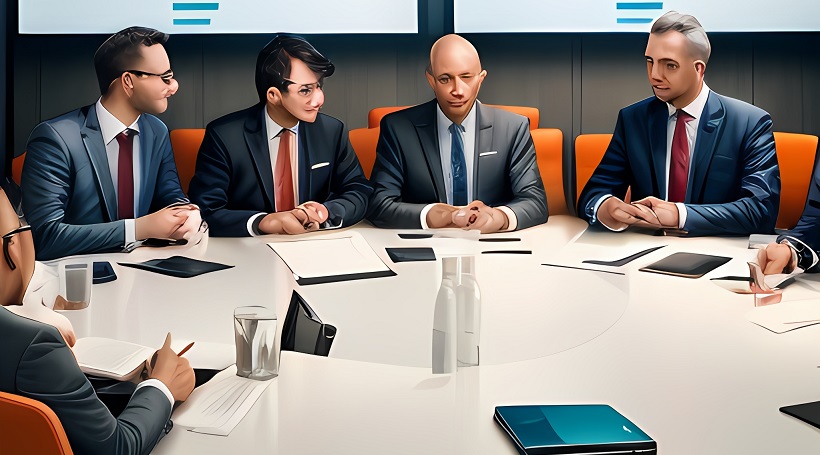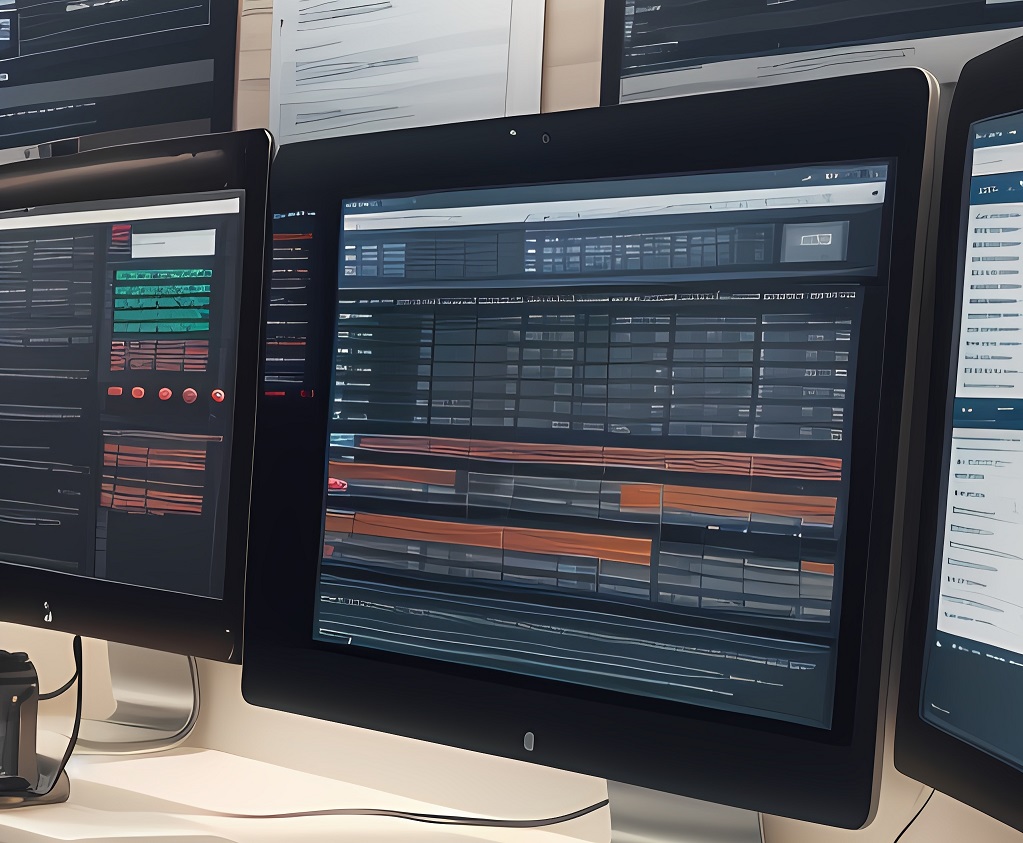Building efficient supply chain management: the strategic perspective of ERP architects
With the acceleration of globalization and market integration, supply chain management has become one of the key factors for corporate success. This article will explore how ERP architects build efficient supply chain management, and take "LongRiverTech" as an example to illustrate its important role in supply chain management. In supply chain management, the role of ERP architects is mainly reflected in the following aspects. The ERP system has accumulated a large amount of business data, which has important reference value for supply chain management. ERP architects need to pay attention to the selection, evaluation and management of suppliers to ensure that suppliers can provide required products on time, quality and quantity. "LongRiverTech" is a company that focuses on supply chain management. It achieves efficient supply chain management through the use of ERP systems and technical means. The following are some applications and practices of "LongRiverTech" in supply chain management. At the same time, LongRiverTech also ensures the quality and stability of suppliers through supplier evaluation and management systems.

With the acceleration of globalization and market integration, supply chain management has become one of the key factors for corporate success. In this context, the role of ERP architects becomes increasingly important. Not only do they need to have a strong IT technology background, but they also need to provide efficient supply chain solutions for enterprises from a strategic perspective. This article will explore how ERP architects build efficient supply chain management, and take "LongRiverTech" as an example to illustrate its important role in supply chain management.
1. The role of ERP architects in supply chain management
The ERP (Enterprise Resource Planning) system is the core of enterprise informatization, and ERP architects are the builders and maintainers of this core. They need to understand the company's business processes and integrate them into the ERP system to improve the company's operational efficiency. In supply chain management, the role of ERP architects is mainly reflected in the following aspects:
1. Process integration: ERP architects need to integrate the company's procurement, production, sales and other processes to ensure the smooth transmission and sharing of information. Through the ERP system, enterprises can understand the status of each link in real time, thereby better coordinating resources and improving overall efficiency.2. Data mining and analysis: The ERP system has accumulated a large amount of business data, which has important reference value for supply chain management. ERP architects can use advanced data analysis tools to mine and process this data, provide enterprises with valuable information, and help enterprises make more informed decisions.3. Optimize resource allocation: ERP architects can achieve reasonable allocation of resources by configuring and optimizing the ERP system. For example, they can automatically adjust inventory and logistics arrangements based on sales forecasts and production plans to ensure the smooth operation of the supply chain.

2. Strategic perspective on building efficient supply chain management1. Demand forecasting and planning: Demand forecasting is one of the core aspects of supply chain management. Enterprises need to predict future demand based on market trends, historical data and other factors to formulate corresponding production and inventory plans. ERP architects need to utilize advanced algorithms and models to improve the accuracy and reliability of forecasts.2. Supplier management: Suppliers are an important part of an enterprise's supply chain. ERP architects need to pay attention to the selection, evaluation and management of suppliers to ensure that suppliers can provide required products on time, quality and quantity. In addition, they also need to establish good cooperative relationships with suppliers to achieve information sharing and collaborative work.3. Inventory management: Inventory is an important part of enterprise supply chain management. Too much inventory will increase costs, and too little inventory will lead to stockouts and production interruptions. ERP architects need to ensure the balance and stability of inventory levels through reasonable inventory strategies and control methods.4. Logistics and distribution: Logistics and distribution are key links in realizing products from suppliers to customers. ERP architects need to focus on the optimization of logistics networks, planning of distribution routes, and reduction of transportation costs. At the same time, they also need to pay attention to information transmission and tracking during the logistics process to ensure the safety and timely delivery of products.5. Customer relationship management: Customers are the final link in an enterprise's supply chain. ERP architects need to understand customer needs, feedback and complaints through customer relationship management systems (CRM) to improve customer satisfaction and loyalty. At the same time, they also need to adjust product and service strategies according to customer needs and market changes to maintain competitive advantages.

3. Application and practice of “LongRiverTech” in supply chain management
"LongRiverTech" is a company that focuses on supply chain management. It achieves efficient supply chain management through the use of ERP systems and technical means. The following are some applications and practices of "LongRiverTech" in supply chain management:
1. Digital management: LongRiverTech adopts advanced ERP system to realize digital management. Through digital means, enterprises can grasp the status and data of each link in real time, improving the efficiency and accuracy of decision-making.2. Intelligent prediction: LongRiverTech uses big data and artificial intelligence technology to make intelligent predictions on market trends and customer needs. Through intelligent forecasting, companies can predict market demand and changing trends in advance and formulate more accurate production and inventory plans.3. Supplier collaboration: LongRiverTech has established close cooperative relationships with suppliers and achieved efficient operation of the supply chain through information sharing and collaborative work. At the same time, LongRiverTech also ensures the quality and stability of suppliers through supplier evaluation and management systems.4. Refined inventory management: LongRiverTech adopts refined inventory management methods to ensure the balance and stability of inventory levels through reasonable inventory strategies and control methods. At the same time, inventory problems are discovered and solved in a timely manner through real-time monitoring and early warning systems.5. Personalized services: LongRiverTech is customer-oriented and provides personalized products and services. Through the customer relationship management system (CRM), we can deeply understand customer needs and feedback, continuously optimize product and service quality, and improve customer satisfaction and loyalty.6. Continuous improvement: LongRiverTech focuses on continuous improvement and innovative development. Upgrade and improve the ERP system through the continuous introduction of new technologies and methods, continuous improvement and innovative development, while focusing on talent training and improving the quality of employees. Continuously explore and unleash the potential and creativity of employees through training and development plans, injecting a steady flow into the development of the enterprise. motivation.7. Risk management: LongRiverTech focuses on risk management and promptly discovers and responds to various potential risks by establishing a complete risk management system to ensure the stable operation and development of the company. It also focuses on compliance operations and strictly abides by relevant laws, regulations and industry standards to ensure corporate compliance. performance and reliability.8. Global layout: LongRiverTech focuses on global layout and continuously expands the scale and influence of the company by expanding international markets and cooperation networks. It also focuses on localized operations and cultural integration, respects local culture and habits, and provides products and services that meet local market needs to achieve Sustainable development and win-win situation.9. Environmental protection and social responsibility: LongRiverTech focuses on environmental protection and social responsibility by adopting sustainable production.